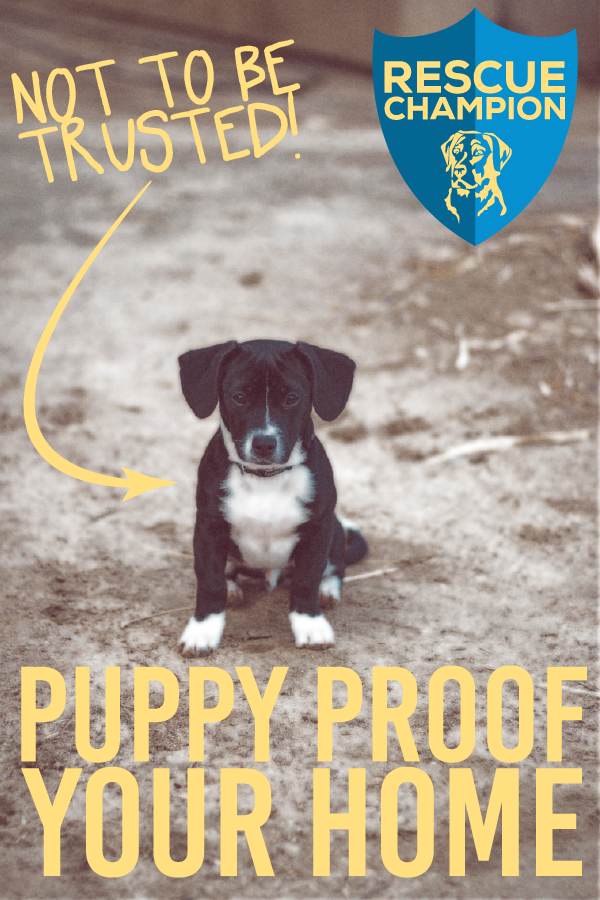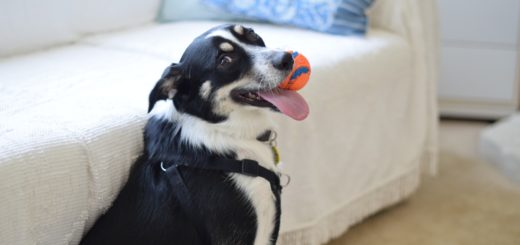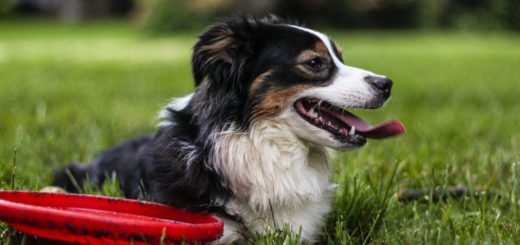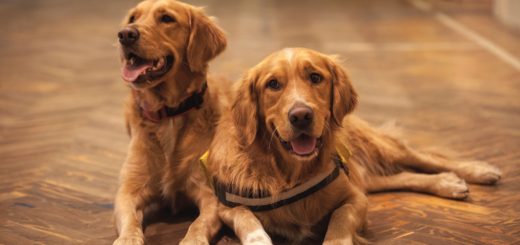Ultimate Guide to Puppy Proofing Your Home

Hopefully you’re a super responsible adult that always plans ahead so you’re reading up on puppy proofing before you bring your new pupper home
HA.
Yeah right! Who’s got time for planning unless we’re talking names or what side of the bed your new dog is going to sleep on! (sorry if you actually are planning ahead – good for you!)
So we’re in the thick of it now, you’ve got a little ball of fur and fury, and you’re woefully unprepared for his clumsy aptitude for getting into absolutely everything.
While rummaging around in everything is pretty darn cute – it eventually will be a nuisance and potentially dangerous.
With that in mind here is our list of puppy proofing tips for houses and apartments!
1. Baby Gates and Play Pens
Step one of puppy proofing. You should set up at least one area of your home where you can leave your pup unsupervised without fear of bathroom accidents, access to human food, fragile items, etc.
A good place to start is somewhere in your home with linoleum floors. If you don’t have linoleum, consider puppy pads.
2. Make a List of All The Things That Can Harm Your Puppy
Puppies can and will get into anything if you let them. And there is a surprising amount of things that can harm your new buddy just laying around in your home right now. Make a quick list and get all that stuff hidden away.
Common house plants
Yep. If your puppy nibbles on the wrong one he can end up in bad shape. A non-exhaustive list of common houseplants toxic to dogs are listed below
- Jade plants
- Aloe plants
- Tulips
- Lilies
- Azalea
- Asparagus Ferns
Check the ASPCA website for all reported toxic houseplants and make sure you’ve got your puppy well away from them!
Cleaning Supplies
An obvious one and probably already inaccessible to your puppy. Just be extra careful and keep your cleaning supplies and other household toxic substances locked away safely from your pup.
Cords and Batteries
Not obvious at first – until you have an animal that loves chewing cords. Some dogs I’ve fostered don’t take a second look at charging cables or power cords.
Others think they’re a chew toy. Keep the cables hidden, or buy some cable protectors.
Thankfully batteries don’t smell good, but you should still make sure they’re inaccessible to your dog. They’re poisonous and can burn him. Double bad!
Xylitol
An increasingly common source of pet poisonings, xylitol is an artificial sweetener found in a ton of foods, supplements, and other household items. See below for a non-exhaustive list of common xylitol-containing products:
- Almost anything “sugar-free”
- gum, candy, etc
- Fruit drinks
- Cereal
- Toothpaste
- Vitamins
- Supplements
Check those ingredient labels!
4. Garbage!
Make sure your garbage is hard to get at and don’t leave it out when it’s time to change the bag. If you do, your puppy WILL get into it.
And if he does, I want you to swear to yourself you won’t get mad at him. He’s a dog. He smells stuff in there. He wants that stuff.
You’re a person. You understand he wants that stuff. You don’t want him to have that stuff. You know he will get that stuff if you let him.
So it’s up to you to make sure he doesn’t!
5. Heights
Your puppy has a lot of things to learn. One of those things is how gravity works and that he can’t fly! Thankfully they usually have some level of self-preservation when it comes to heights but I’ve seen pups launch themselves off landings several feet high. Not enough for them to be injured, but you don’t need to take that risk.
Keep the playpen away from edges and gate off the staircases until your pup knows how to use the stairs.
More Guides for your New Puppy
How to Find a Responsible Dog Breeder
As an Amazon Associate I earn from qualifying purchases.



